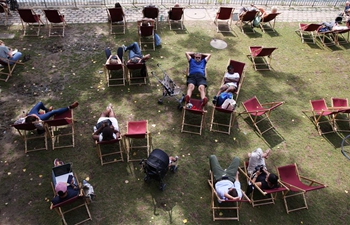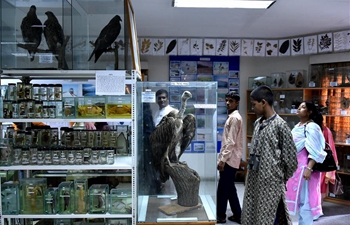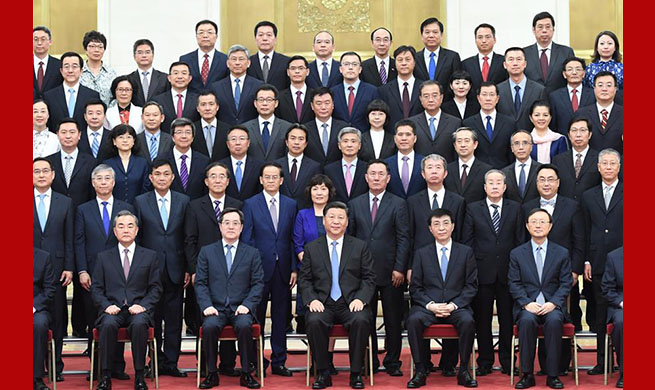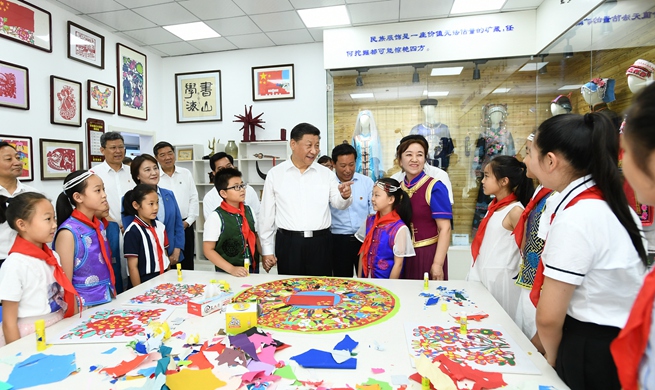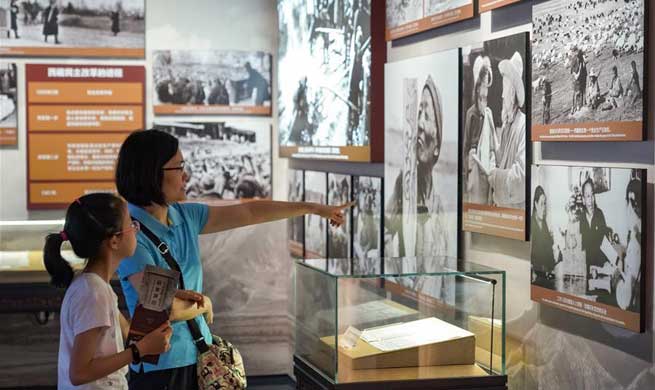by Dana Halawi
BEIRUT, July 19 (Xinhua) -- Local analysts agree that Palestinian refugees constitute an added value to the Lebanese economy and thus any issue related to Palestinians must be handled carefully.
"Palestinian refugees working in Lebanon spend their money inside the country so they basically contribute to the economy," political analyst Youssef Diab told Xinhua.
Diab said that Palestinians are not considered a burden because they do spend the money they earn inside the country whereas Syrians, Egyptians, Bengalis and other nationalities generate income in Lebanon but send them to their relatives in their countries.
Independent economist Kamal Hamdan said that Palestinian refugees working in Lebanon constitute only a small portion of total Lebanese workforce.
"Palestinians' competition with Lebanese labor is a very limited phenomenon because a big part of Palestinians in Lebanon work in Palestinian Non-Governmental Organizations (NGOs) and United Nations agencies," he said.
He added that while Palestinians' impact on Lebanon's labor market is very limited, they constitute an added value for the economy because they spend money in supermarkets, restaurants, universities and many other places.
Remarks by analysts came following days of protests held by Palestinians in Lebanon asking for equal treatment to the Lebanese in the labor market.
Palestinians' anger was sparked by a decision by the Lebanese Labor Ministry to demand all foreign workers including Palestinians to get work permits in order to work in Lebanon.
Palestinians slammed this decision while asking the government for more rights including their ability to work in all sectors in Lebanon without any limitations or restrictions.
Palestinians currently labor under legal restrictions that bar them from employment in at least 25 professions, "including law, medicine, and engineering," a system that relegates them to the black market for labor.
Mohamad Al Hafez, a 35-year-old Palestinian refugee, works for his own account in computers maintenance because he is not allowed to formally work in this field in Lebanon.
"We are only allowed to work in over 20 professions in Lebanon which makes it harder to generate a decent income," Hafez told Xinhua while adding that he relies on his own contacts and social media to promote his services.
Hafez, whose mother is Lebanese, said that he has been living his entire life in Lebanon without having access to the natural rights of any human being.
"We should be treated equally to the Lebanese. We are not asking for naturalization. We just want to be able to work and live with dignity," he said while noting that his family spends all its income inside the country just like any Lebanese.
Economist Pierre Khoury told Xinhua that Lebanon always needs Palestinian workers.
Khoury said that shops that are opened by Lebanese tend to employ Palestinians and Syrians because they ask for lower salaries compared to local workers.
The restrictions and limitations imposed on Palestinians in Lebanon have left many of them unemployed.
A study by the Lebanese Palestinian Dialogue Committee estimates that the labor force among registered Palestinians in Lebanon stands at 51,393 individuals, with an average unemployment rate of 18.4 percent.
"When we prevent Palestinians from working, we would be encouraging them to join terrorist groups or steal for them to be able to eat and live," Diab said.
Likewise, political analyst Makram Rabah told Xinhua that any measure that the government plans to make in the future should take into account the sensitive issue of the Palestinian refugees in Lebanon.
"Any move that is not studied well will lead not only to protests but also to instability in the country," Rabah said.






